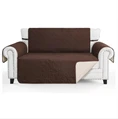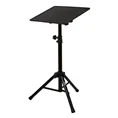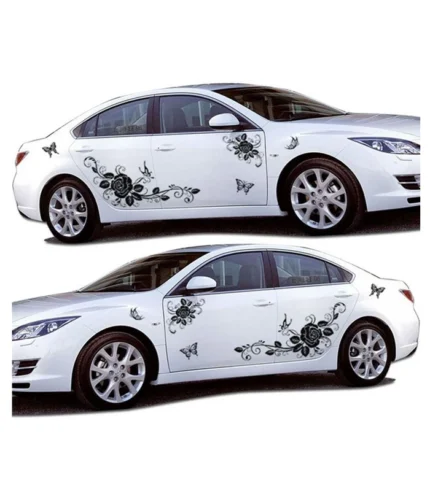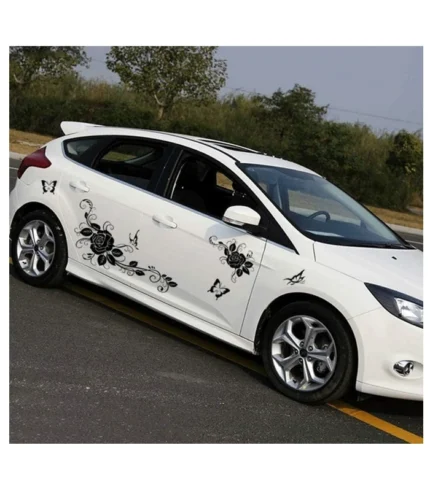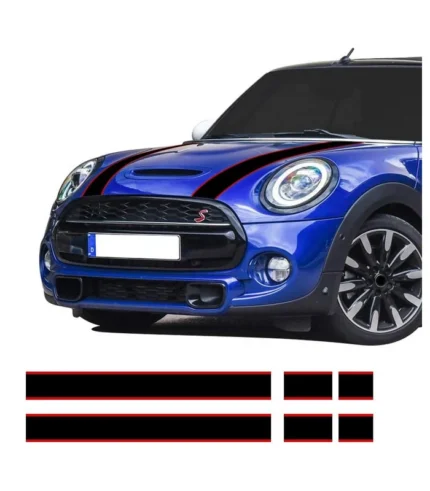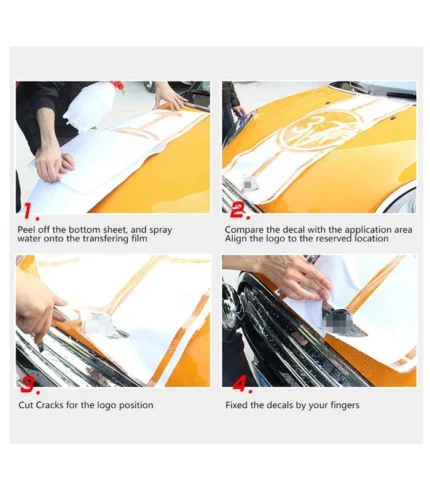Shopsy online shopping
Browse Categories
- Furniture
Furniture
Furniture is an integral part of our daily lives, providing comfort, functionality, and aesthetic appeal to our living spaces. From ancient civilizations to modern times, the evolution of furniture has been a fascinating journey. This comprehensive guide aims to delve into the world of furniture, exploring its history, types, materials, and the latest trends.
The Historical Evolution of Furniture
Ancient Furniture: From Early Civilizations to the Middle Ages
- Overview of furniture in ancient Mesopotamia, Egypt, Greece, and Rome
- The craftsmanship of medieval furniture and its influence on design
Renaissance and Baroque Periods: The Birth of Artistic Furniture
- Intricate details and ornate designs of Renaissance furniture
- Baroque influence on furniture during the 17th century
The Industrial Revolution: Mass Production and Innovation
- Impact of the Industrial Revolution on furniture manufacturing
- Introduction of new materials and styles during the 19th century
Types of Furniture
Residential Furniture: Enhancing Home Comfort
- Living room furniture: sofas, chairs, coffee tables
- Bedroom furniture: beds, dressers, nightstands
- Dining room furniture: tables, chairs, buffets
Office Furniture: Ergonomics and Productivity
- Desks, chairs, and storage solutions for the modern workplace
- Trends in home office furniture with the rise of remote work
Outdoor Furniture: Bridging the Gap Between Indoors and Outdoors
- Patio sets, outdoor sofas, and dining furniture
- Weather-resistant materials and maintenance tips
Specialized Furniture: From Antique to Modern
- Antique furniture: collectors' items and historical value
- Custom and bespoke furniture for unique preferences
Materials Used in Furniture Construction
Wood: A Timeless Favorite
- The durability and versatility of different wood types
- Sustainable and eco-friendly wood sourcing practices
Metal: Modern and Industrial Aesthetics
- Steel, aluminum, and other metal alloys in furniture design
- Contemporary trends in metal furniture
Upholstery and Fabrics: Adding Comfort and Style
- Importance of fabric selection in upholstery
- Trends in color, texture, and patterns for fabric-covered furniture
Synthetic Materials: Durability and Affordability
- Plastic, laminate, and composite materials in furniture
- Pros and cons of synthetic materials in furniture construction
Design Trends in Modern Furniture
Minimalism: Less is More
- Clean lines, simple shapes, and functional designs
- Integration of minimalism in various furniture pieces
Sustainable and Eco-Friendly Furniture
- The rise of environmentally conscious design
- Recycled materials and sustainable practices in furniture manufacturing
Smart Furniture: Embracing Technology in Design
- Integration of technology in furniture for convenience
- Examples of smart furniture and their functionalities
Mix and Match: Eclectic Design Approaches
- Blending different styles, colors, and materials for a unique look
- Tips for achieving a cohesive eclectic design in furniture
Conclusion: As we traverse through the rich history, diverse types, and evolving trends in the world of furniture, it becomes evident that furniture is more than just functional pieces—it is a reflection of our culture, lifestyle, and design preferences. Whether it's the timeless appeal of wooden classics or the futuristic designs of smart furniture, the world of furniture continues to captivate and inspire us, shaping the way we experience and interact with our living spaces.
- Cooking
Cooking
Cooking is an art that transcends the boundaries of culture, geography, and time. It is a universal language that speaks to our senses, connecting us through the joy of flavors and the satisfaction of a well-prepared meal. In this comprehensive exploration, we will delve into the diverse facets of cooking, from its historical roots to the modern culinary landscape. Join us on a gastronomic journey as we uncover the secrets, techniques, and cultural significance of cooking.
The Historical Tapestry of Cooking
Early Culinary Practices
The history of cooking dates back to ancient times when humans discovered fire and began experimenting with different methods of preparing food. Explore the evolution of cooking techniques, from roasting over an open flame to the development of rudimentary cookware.
Culinary Traditions Around the World
Every culture has its unique culinary traditions that reflect its history, geography, and available ingredients. Uncover the fascinating stories behind iconic dishes from various regions, showcasing the diversity of cooking methods and flavor profiles.
The Science of Cooking
The Chemistry of Flavor
Delve into the molecular world of cooking and understand how chemical reactions transform raw ingredients into a symphony of flavors. Learn about the Maillard reaction, caramelization, and other processes that contribute to the complexity of taste.
The Role of Heat in Cooking
Heat is a fundamental element in cooking, influencing the texture, color, and taste of ingredients. Explore the different heat transfer methods used in cooking, from conduction to convection, and discover how chefs master the art of temperature control.
Culinary Techniques
Knife Skills: The Foundation of Every Chef
A sharp knife is a chef's best friend. Uncover the importance of knife skills in the culinary world, from basic cutting techniques to advanced precision cuts. Learn how to choose the right knife for each task and maintain its sharpness.
Essential Cooking Methods
Whether it's sautéing, braising, or sous-vide, each cooking method imparts a distinct character to the dish. Explore the essential cooking techniques that form the backbone of culinary mastery, with practical tips for perfecting each method.
The Art of Flavor Pairing
Understanding Flavor Profiles
Unlock the secrets of flavor by dissecting the components that make up a dish. From sweet and savory to umami and bitter, explore the nuances of flavor profiles and how chefs balance them to create a well-rounded culinary experience.
Pairing Ingredients: A Symphony of Tastes
Discover the art of ingredient pairing and how chefs combine diverse elements to elevate their dishes. From classic combinations to avant-garde pairings, explore the creative process behind crafting harmonious flavor marriages.
Cultural Influences on Cooking
Fusion Cuisine: Where Tradition Meets Innovation
As the world becomes more interconnected, culinary traditions blend in unexpected ways. Explore the phenomenon of fusion cuisine, where chefs draw inspiration from diverse cultures to create dishes that celebrate global flavors.
Rituals and Symbolism in Cooking
Food is often deeply intertwined with cultural rituals and symbolism. Delve into the significance of culinary practices in various cultures, from the symbolism of certain ingredients to the role of food in religious ceremonies.
Cooking in the Digital Age
The Rise of Food Tech
From smart kitchen appliances to virtual cooking classes, technology is transforming the way we approach cooking. Explore the innovations that are shaping the culinary landscape and how chefs leverage technology to enhance their skills.
Social Media and the Food Revolution
Instagram-worthy dishes, viral recipes, and food influencers – social media has become a powerful force in the culinary world. Examine the impact of platforms like Instagram and TikTok on food trends, aesthetics, and culinary storytelling.
Sustainable Cooking
Farm-to-Table Movement
The farm-to-table movement emphasizes the importance of sourcing local, sustainable ingredients. Learn about the benefits of supporting local farmers, reducing food miles, and the impact of this movement on both the environment and the quality of our meals.
Plant-Based Revolution
As concerns about environmental sustainability and health grow, more people are embracing plant-based diets. Explore the world of plant-based cooking, from innovative meat substitutes to creative vegetable-centric dishes.
The Future of Cooking
Culinary Trends in the 21st Century
What does the future hold for the world of cooking? Examine emerging culinary trends, from unique ingredients and cooking techniques to cultural influences that are shaping the way we eat. Predictions from culinary experts provide insight into what lies ahead.
Conclusion: In this culinary odyssey, we've embarked on a journey through the rich history, scientific intricacies, and cultural influences that define the world of cooking. Whether you're a seasoned chef or an enthusiastic home cook, the art of cooking continues to evolve, inviting us to explore new flavors, techniques, and possibilities. As we savor the diverse tapestry of global cuisine, one thing remains certain – cooking is a timeless expression of creativity and a celebration of the universal language of taste.
- Cars
Car Accessories
Car Accessories: In the dynamic world of automotive innovation, car accessories play a pivotal role in enhancing the overall driving experience. From practical add-ons that improve safety and functionality to stylish embellishments that reflect personal taste, the market for car accessories is diverse and ever-evolving.
This comprehensive article delves into the exciting realm of car accessories, exploring various categories that cater to different needs and preferences.
The Evolution of Car Accessories
Understanding the history and evolution of car accessories provides valuable insights into how these enhancements have evolved alongside the automotive industry. From humble beginnings with basic functional additions to today's cutting-edge technological advancements, car accessories have come a long way in shaping the driving experience.
Essential Accessories for Safety and Functionality
Safety on the road is paramount, and car accessories designed to enhance it have become indispensable. This section explores essential safety accessories such as airbags, anti-lock braking systems (ABS), dash cameras, and parking sensors. Additionally, we'll delve into accessories that improve functionality, including roof racks, cargo organizers, and towing kits.
Stylish Additions
Car enthusiasts often seek ways to personalize their vehicles, and this chapter explores a myriad of stylish accessories for both the interior and exterior. From custom seat covers, floor mats, and ambient lighting to exterior upgrades like alloy wheels, spoilers, and decals, discover how these accessories can transform a car into a reflection of the owner's personality.
Tech Innovations in Car Accessories
The digital age has ushered in a new era of tech-savvy car accessories. This chapter explores the latest technological innovations, including smart mirrors, GPS navigation systems, Bluetooth-enabled devices, and entertainment systems. Discover how these accessories not only make driving more enjoyable but also contribute to a connected driving experience.
Engines, Exhausts, and Suspension
For automotive enthusiasts seeking to enhance their vehicle's performance, this chapter explores accessories designed to boost horsepower, improve handling, and optimize the exhaust system. From aftermarket air intakes and performance exhausts to suspension upgrades, learn how these additions can take a car's performance to the next level.
Eco-Friendly Accessories for Sustainable Driving
As environmental concerns become more prevalent, this chapter focuses on eco-friendly car accessories. From solar-powered ventilation systems to electric vehicle charging stations and eco-friendly seat covers, discover how car owners can contribute to sustainable driving practices.
In conclusion, the world of car accessories is a vast and exciting landscape, offering something for every type of car owner. Whether prioritizing safety, style, technology, or performance, the diverse range of accessories available ensures that drivers can tailor their vehicles to meet their unique needs and preferences.
As automotive technology continues to advance, so too will the innovation in car accessories, promising an even more exciting future for car enthusiasts around the world.
- Fashion
Fashion
Fashion is not merely the clothes we wear; it's a form of self-expression, a reflection of our personality, and a mirror of the society we live in. The world of fashion is dynamic, constantly evolving, and influenced by various factors such as culture, technology, and individual tastes. This article delves into the multifaceted realm of fashion, exploring its historical roots, its impact on society, and the ever-changing landscape of trends.
The Evolution of Fashion Through History
- Ancient Influences: From ancient civilizations to the medieval era, explore how clothing has been a marker of status, occupation, and societal norms.
- Renaissance to Industrial Revolution: Witness the transition from elaborate Renaissance fashion to the functional attire of the Industrial Revolution.
Cultural Diversity in Fashion
- Traditional Attire: Discover how different cultures have preserved their identity through traditional clothing, often showcasing intricate craftsmanship and symbolism.
- Globalization and Fusion: Analyze the impact of globalization on fashion, leading to the fusion of styles from around the world.
The Power of Fashion in Society
- Social Influence: Examine how fashion shapes societal perceptions and influences social dynamics, touching upon topics like body image and self-esteem.
- Fashion as a Political Statement: Investigate instances where clothing has been used as a tool for political expression and protest.
Technology and Fashion
- Digital Revolution: Explore the role of technology in revolutionizing the fashion industry, from online shopping to virtual fashion shows.
- Sustainable Fashion: Discuss the growing importance of sustainability in fashion and how technology contributes to eco-friendly practices.
Fashion Icons and Influencers
- Iconic Figures: Celebrate legendary fashion icons who have left an indelible mark on the industry, exploring their impact on trends and style.
- The Rise of Social Media Influencers: Examine the role of social media in shaping contemporary fashion trends and the influence of online personalities.
The Business of Fashion
- Fashion Industry Dynamics: Investigate the economic aspects of the fashion industry, from design and manufacturing to marketing and retail.
- Fast Fashion vs. Sustainable Fashion: Compare the pros and cons of fast fashion and sustainable fashion, considering their environmental and ethical implications.
Trends Through the Decades
- From Flapper Dresses to Power Suits: Take a nostalgic journey through the fashion trends of different decades, exploring the cultural and societal influences that shaped each era.
- Revival of Retro Styles: Analyze the cyclical nature of fashion trends and the resurgence of vintage styles in modern times.
Fashion and Gender Identity
- Breaking Gender Norms: Discuss how fashion has played a pivotal role in challenging traditional gender norms, paving the way for inclusivity and diversity.
- Unisex and Gender-Neutral Fashion: Explore the rise of unisex and gender-neutral fashion lines, reflecting a more progressive and inclusive approach.
The Future of Fashion
- Technological Innovations: Delve into emerging technologies such as augmented reality and artificial intelligence and their potential impact on the future of fashion.
- Sustainability as a Driving Force: Discuss how the fashion industry is evolving to meet the demands for sustainable and ethical practices, shaping the future landscape.
Conclusion: Fashion is an ever-evolving tapestry that weaves together history, culture, and individual expression. As we navigate the complex world of trends and styles, it is essential to appreciate the diverse influences that contribute to the rich tapestry of the fashion industry. From its ancient roots to the digital age, fashion continues to be a powerful force that reflects, shapes, and defines our society. As we step into the future, the only certainty is that the world of fashion will continue to captivate, inspire, and evolve.
- Bags
- Kids
- Shoes
- Electronics
- Home Decor
- Clocks
-
Wall Clocks
- Big Wall Clocks
- Cool Wall Clocks
- Decorative Wall Clocks
- Digital Wall Clocks
- Glass Wall Clocks
- Wall clocks hands only
- Kitchen Wall Clocks
- Large Wall Clocks
- LED Wall Clocks
- Metal Wall Clocks
- Mirror Wall Clocks
- Modern Wall Clocks
- Pendulum Wall Clocks
- Silent Wall Clocks
- Skeleton Wall Clocks
- Small Wall Clocks
- Square Wall Clocks
- Traditional Wall Clocks
- Vintage Wall Clocks
- Wooden Wall Clocks
-
Wall Clocks
- Beauty
Car Decal Sticker
Car Decal Sticker: In the expansive world of automotive customization, where every vehicle serves as a canvas for personal expression, one accessory stands out for its ability to make a bold statement: the humble car decal sticker. From witty slogans to intricate designs, these adhesive artworks have adorned vehicles for decades, captivating drivers and onlookers alike with their versatility and charm.
Showing all 2 results
BININBOX 1 Set Car Auto Body Sticker
BININBOX 1 Set Car Auto Body Sticker: In the ever-evolving world of automotive customization, enthusiasts are continually seeking innovative ways to make their vehicles stand out from the crowd. From performance upgrades to aesthetic enhancements, every detail matters in creating a personalized driving experience.
Car Styling Hood Bonnet Stripes Sticker
Car Styling Hood Bonnet Stripes Sticker: In the realm of automotive customization, even the smallest details can make a significant impact. One such detail that has gained popularity among car enthusiasts is the hood bonnet strip sticker.
The Origins: From Practicality to Personality
The history of car decal stickers traces back to the early days of automotive culture when they primarily served practical purposes rather than aesthetic ones. In the early 20th century, manufacturers began affixing decals to vehicles to display vital information such as registration numbers, vehicle model names, and safety certifications. These decals were typically utilitarian, lacking the flair and creativity that would later define the medium.
However, as the automobile evolved from a mere mode of transportation to a symbol of personal identity and status, so too did the decals that adorned them. What began as a functional necessity gradually transformed into a means of self-expression, with drivers seeking ways to customize their vehicles to reflect their personalities, interests, and affiliations.
The Rise of Personalization
The 1950s and 1960s witnessed a surge in the popularity of car culture, fueled by the emergence of hot rods, muscle cars, and custom-built vehicles. As enthusiasts sought to differentiate their rides from the masses, custom decals became a favored method of adding unique flair to their cars. Whether it was a racing stripe, a flame motif, or a cheeky bumper sticker, these decals allowed drivers to make a statement and stand out on the open road.
During this period, automotive brands also recognized the marketing potential of decals as a way to promote their products and cultivate brand loyalty. Car manufacturers began offering branded decals featuring logos, slogans, and iconic imagery, effectively turning vehicles into mobile advertisements. From the iconic Ford Mustang pony emblem to the Chevrolet bowtie badge, these decals became synonymous with automotive identity and heritage.
The Evolution of Design
As technology advanced and manufacturing techniques became more sophisticated, car decal stickers evolved from simple vinyl graphics to intricate works of art. With the advent of computer-aided design (CAD) software and digital printing technology, designers gained unprecedented freedom to create highly detailed and photorealistic decals that could adhere to curved surfaces and withstand the rigors of the road.
Today, the range of designs available is virtually limitless, catering to every conceivable taste and interest. From striking geometric patterns to hyper-realistic portraits, there's a decal sticker to suit every style and sensibility. Automotive enthusiasts can choose from a plethora of themes, including sports teams, pop culture icons, nature scenes, and political slogans, allowing them to express their passions and affiliations with pride.
Beyond Decoration: The Functional Utility of Decals
While car decals are primarily valued for their aesthetic appeal, they also serve practical purposes that extend beyond mere decoration. For example, reflective decals enhance visibility and safety by increasing a vehicle's visibility in low-light conditions, making them popular choices for emergency vehicles, commercial fleets, and cyclists.
Similarly, window decals can provide privacy and shade while reducing glare and heat inside the vehicle, enhancing comfort for passengers and protecting upholstery from sun damage. Moreover, decals featuring QR codes or NFC tags can facilitate contactless interactions, allowing businesses to display promotional offers, product information, or social media links to engage with potential customers.
The DIY Revolution: Customization in the Digital Age
One of the most significant developments in the world of car decals is the democratization of design and production brought about by the internet and digital technology. Thanks to online platforms and print-on-demand services, anyone with an internet connection can now create custom decals tailored to their unique specifications.
DIY enthusiasts and small businesses can design their decals using intuitive software tools, upload their artwork to print-on-demand websites, and have high-quality decals delivered to their doorstep in a matter of days. This accessibility has unleashed a wave of creativity, allowing individuals to express themselves in ways that were once reserved for professional designers and large corporations.
Environmental Considerations: Balancing Creativity with Sustainability
As the popularity of car decals continues to soar, it's essential to consider the environmental impact of their production and disposal. Traditional vinyl decals, while durable and weather-resistant, are typically made from polyvinyl chloride (PVC), a plastic compound that poses environmental hazards throughout its lifecycle, from production to disposal.
In response to growing concerns about plastic pollution and sustainability, manufacturers are exploring alternative materials and production methods that minimize environmental harm. Eco-friendly options such as biodegradable vinyl, water-based inks, and recyclable substrates offer a more sustainable alternative for eco-conscious consumers who wish to minimize their carbon footprint without sacrificing creativity or quality.
Conclusion: In an era defined by mass production and conformity, car decal stickers stand as a beacon of individuality and self-expression in the automotive world. From their humble origins as practical identifiers to their current status as symbols of personal identity and style, decals have remained a timeless accessory beloved by drivers and enthusiasts around the globe.
As technology continues to evolve and consumer preferences shift, the future of car decals promises even greater opportunities for creativity, innovation, and sustainability. Whether it's a nostalgic tribute to a bygone era, a bold statement of activism, or a whimsical expression of personality, the allure of car decals shows no signs of fading anytime soon. So, the next time you hit the road, why not let your vehicle do the talking with a custom decal sticker that speaks volumes about who you are and what you love?


